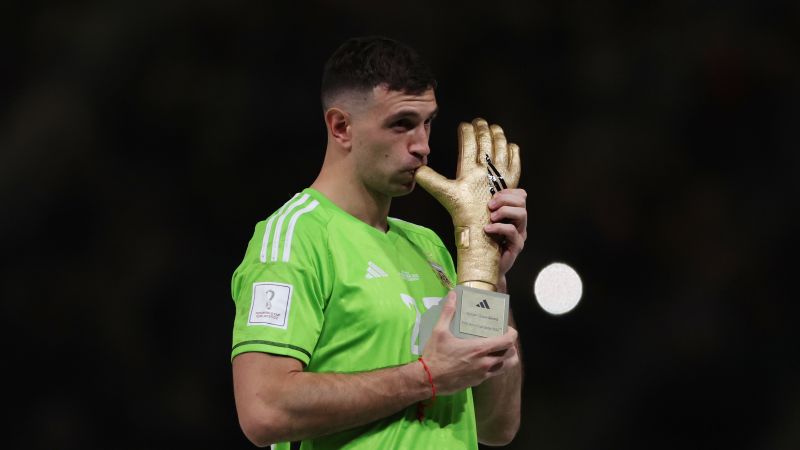CNN
—
A soccer match lasts for 90 minutes, another 30 if there really needs to be a winner. But if it’s still level after that, then the game will be decided with a penalty shootout, arguably the most nerve-shredding experience in all of sports.
For the fans, it’s excruciating; at the World Cup in Qatar, one Argentina supporter sobbed uncontrollably as she watched the quarterfinal shootout against the Netherlands through her fingers. By the end, she looked distraught. All the emotion had been wrung out of her, and the tears that she cried were of relief, rather than joy.
For the players, such emotions are magnified tenfold. “Love hurts,” goes the anonymous quote, “but not as much as penalties.”
Success or failure could be career-defining, one simple kick from 12 yards is weighed down by teammates’ hopes and the expectation of potentially millions of fans. As the author Karl Wiggins put it, “It’s as if, for a few seconds, a player’s soul is laid bare for the entire world to see.”
Very few people would admit to enjoying a shootout, but Professor Geir Jordet is an exception; he can’t get enough of them.
“A penalty shootout is a very uncomfortable event,” he told CNN Sport from his research facility in Oslo. “It’s painful because the pressure is so intense, and of course, the consequences of failing are so dire. Penalties, for me, are wonderful!”
Professor Jordet works at the Norwegian School of Sport Sciences, where he specializes in performance under extreme pressure. He’s been studying shootouts for almost 20 years and has analyzed more than 200 of them, around 2,000 kicks in total.
He’s studied the psychology of the event, observed the behavior and dynamics of the participants and crunched the data to conclude that even the most dramatic of shootouts can be swayed by teams who know what they’re doing.
“The main factor in a penalty shootout is luck,” the former England goalkeeper Peter Shilton once declared, but Jordet is convinced that it is never “only a lottery.”
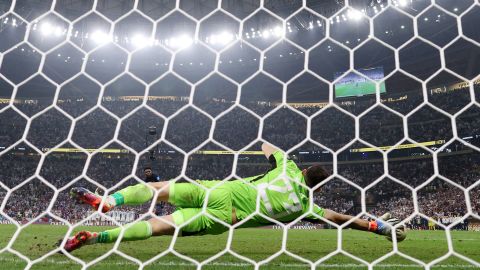
The margin between success and failure in title matches seems to be getting slimmer, and so it’s in shootouts, where the margins are even tighter, that soccer’s biggest prizes are being decided.
“If you enter a major tournament today with the ambition to win,” says Jordet, “you’re making a severe mistake if you’re not prepared for penalties.”
In 2021, both the Brazilian men and the Canadian women needed penalty wins en route to Olympic gold in Tokyo; in the same month, Argentina survived a shootout to win the Copa América and Italy triumphed in the same way at the European Championship at Wembley.
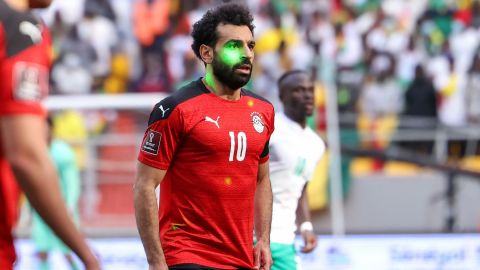
The following year was a bonanza for penalties.
Starting in February with Senegal’s Africa Cup of Nations final win against Egypt. Liverpool won two English cup finals – both against Chelsea – on spot-kicks, while Real Betis and RB Leipzig won the Spanish and German Cup finals respectively from the spot.
Eintracht Frankfurt beat Rangers in the Europa League final on penalties while the Philadelphia Union missed all of its kicks to hand LAFC the title after an extraordinary MLS Cup Final.
The 2022 penalty party concluded in Qatar where there was a record five shootouts, including the final.
Within seconds of the final whistle being blown, Jordet can tell if one side has the edge. He’s able to glean valuable information simply by observing the interactions on the field.
“The coach and the staff of some teams almost panic when the game goes to penalties,” Jordet explained to CNN Sport. “It seems like they don’t know what to do. And then with other teams, it’s all dealt with before the game and definitely before the penalties.”
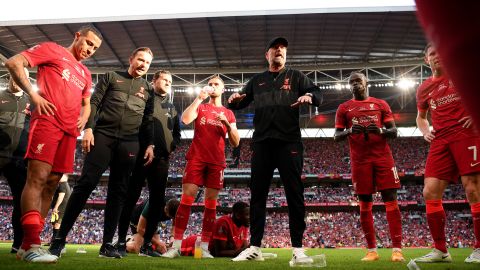
Last season’s FA Cup final was a case in point; Jordet observed that Liverpool’s manager Jurgen Klopp had established a plan and communicated it calmly and warmly to each of his players within 90 seconds of the final whistle.
They spent the remaining time casually interacting and even laughing. Several more minutes had passed before Chelsea’s seemingly fraught manager Thomas Tuchel approached his players, and he was still revising his notes.
“He moves to the middle of the circle, BEFORE he’s done with the plan,” Jordet observed in a tweet thread, “Tuchel then asks his players about the shots, publicly in front of the whole team.
“There’s plenty of group pressure when done this way, the chance of honest responses from the players drops, and it creates further stress that carries on to the shootout itself.”
Liverpool’s efficient organization meant the players were able to take up a position within the center circle that was closest to their coaching staff, where Klopp continued to exude warmth and love.
Chelsea went on to miss two penalties and Liverpool claimed the trophy.
Nobody can influence the proceedings in a shootout more than the goalkeeper, who is involved in every single kick. Jordet’s research has confirmed that the goalies aren’t just there to stop the shots, they can be a positive influence on their teammates and a destructive force for their opponents.
In recent seasons, Argentina’s 30-year-old goalkeeper Emiliano Martínez has established himself as a gamechanger in shootouts, the “Machiavelli of football.”
Jordet has noticed that his psychological antics are a nightmare for his opponents. During the semifinal of the Copa América against Colombia in 2021, he intimidated his opponents with trash talk, saving three penalties in a 3-2 win.
Since the stadiums were empty of fans in that edition, Jordet has noted that you could clearly hear what he was saying, “I can tell you’re nervous. I know where you’re going to shoot. Watch and see how I’m going to eat you up. Remember, I’m going to eat you up!”
But it was in the World Cup final against France that Martínez demonstrated the full range of his expertise.
Jordet says that he set the tone right from the start, arriving first in the penalty area and claiming the territory as his own. “Martínez took a very proactive approach to everything,” Jordet explained.
“He created his home in the penalty area. He initiated some handshakes with the first French players to arrive,” a disarming strategy which makes opponents drop their guard and renders them more vulnerable when he later strikes.
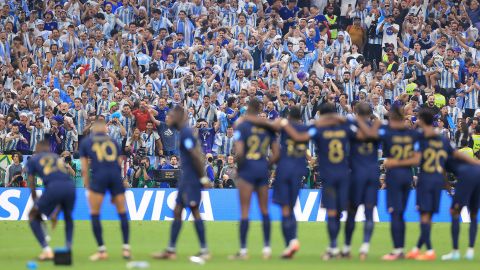
For the first two French penalties, Martínez discreetly set about disrupting the takers, urging the referee to check the placement of the ball on the spot.
This kind of interference would be unsettling for any penalty takers, but he was also feeling out the referee: how much would he be prepared to tolerate?
Jordet believes that enabled Martínez to quickly assume a proactive role within just two kicks and was then able to “fully get to work.”
Martínez saved the second penalty that he faced, diving low to his right to deny Kingsley Coman, and his celebration was exuberant.
Jordet notes that goalkeepers don’t typically celebrate so wildly, but his research has shown that celebrations can influence subsequent events.
“We found, to our astonishment, that penalty takers who celebrate intensely have a statistically higher probability of ending up on the winning team.
“In fact, the next penalty taker for the opponent misses about 10-15% of the time, and your next [teammate] scores about 7 to 8% more of their penalties. These types of celebratory displays are contagious.”
By the time the third French player stepped up, Martínez knew that he could get away with almost anything. He snatched up the ball, turned his back on the referee and walked back to his goal line.
The approaching Aurélien Tchouaméni should have arrived at the biggest moment of his professional career to find the ball on the spot, instead Martínez was holding it, gesturing to the Argentine fans to increase the volume.
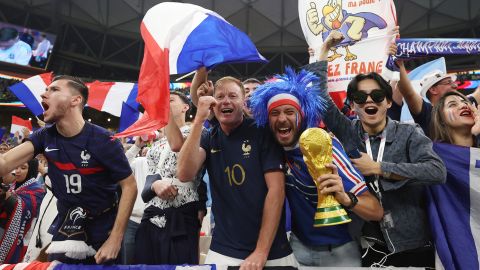
When the referee demanded its return, Martínez rolled it away at a 45-degree angle, forcing Tchouaméni to fetch it himself. Jordet has calculated that whenever a player has to wait for a kick, the probability of a goal drops by 20 to 30%.
Tchouaméni aimed low and to the left and missed.
By now, Martínez knew that his own teammates could face similar tactics from the French goalie Hugo Lloris, so he grabbed the ball himself and handed it to his incoming teammate Leandro Paredes, one of four Argentine penalty takers, who all scored.
Martínez was eventually booked for interfering with the fourth French player, Randal Kolo Muani, but by then the damage was done and Argentina won the shootout 4-2.
“Very calculated, creative, well executed,” Jordet concludes, “but of course also highly, highly cynical.”
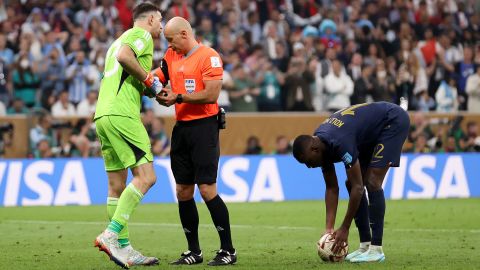
Martínez showed very little remorse for his “cynical” actions. After the final he said, “”I have no words for it. I was calm during the penalty shootout and everything went as we wanted.”
“All that I have dreamed of has been achieved.”
Since the conclusion of the World Cup, the International Football Association Board (IFAB), which determines the laws of football, confirmed to CNN Sport that it is looking to clarify what goalkeepers can and cannot do before penalties are taken.
This would include delaying the taking of the kick or touching the goalposts, crossbar or goal net.
Shootouts don’t always have to be so negative, though; sometimes, they can be won with love.
Jordet notes that when LAFC’s Cristian Tello missed the first penalty against Philadelphia in the MLS Cup Final, some of his teammates met him on his return to the center circle and walked him back in.
“You’re implicitly saying to the others that even if you miss, you’re a part of the group, which is the message that you would like to send to each other in a penalty shootout.”
Los Angeles made every other kick to claim the cup.
Some teams seem to revel in the cauldron of the shootout, while others dread it.
England has lost seven of the 10 that it’s participated in, while the Netherlands have lost seven out of eight. Spain’s loss to Morocco in 2022 means it’s now lost a record four shootouts in the FIFA World Cup alone.
Jordet has seen enough to believe in ghosts; he says that if your team has lost in a previous shootout, even if you weren’t involved in it, you’re more likely to miss. Conversely, success begets success.
Having lost to Czechoslovakia and the famous Antonin Panenka penalty in the European Championship final in 1976, Germany has won six in a row, Croatia has won its last four, and Argentina its last three, claiming both the Copa América and the World Cup.
More and more teams are coming to accept that understanding the psychology of shootouts is essential in the modern game, and 20 professional teams have already turned to Jordet’s consultancy business for help.
“I totally think there’s so much more to be discovered in the softer areas of sports science,” Jordet says, dismissing the cynics who claim that skill development, relationships and psychology are important, but not quantifiable.
“I honestly would beg to differ. If you know what to look for, you can measure a lot of these things in games, and this is something I work on every single day. I think we will make some big progress in the years to come.”
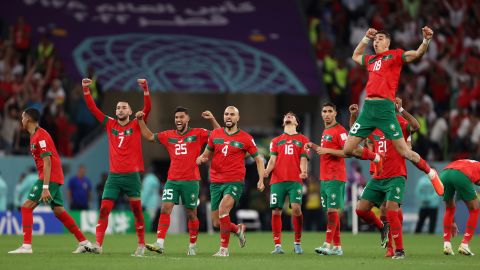
Jordet knows so much about penalties because he spent years trawling the archives, watching every single shootout from the World Cup, European Championship and Copa América since 1976. He’s interviewed 25 players who were there and tested his predictions in practice with 15 elite teams.
“I love penalty shootouts,” he says, “I think it’s the ultimate drama in football.”
And yet, much of the nuance he described in the World Cup final wouldn’t have been obvious to the fans watching the game on TV because broadcasters tend to fill the space between the kicks with replays and closeups of anxious coaches and fans.
“The details that really mattered, the subplot of the event, can only be accessed if you’re lucky enough to have access to isolated broadcast cameras or by scrolling through fan videos on YouTube.
“TV producers aren’t always my friends,” Jordet concludes, “because they don’t look at what I like to look at.”
But now that teams are beginning to realize the value of small details in shootouts, perhaps broadcasters might also consider innovating their approach. The greatest drama in sport is happening right under their noses, and sometimes they’re missing the best bits.

